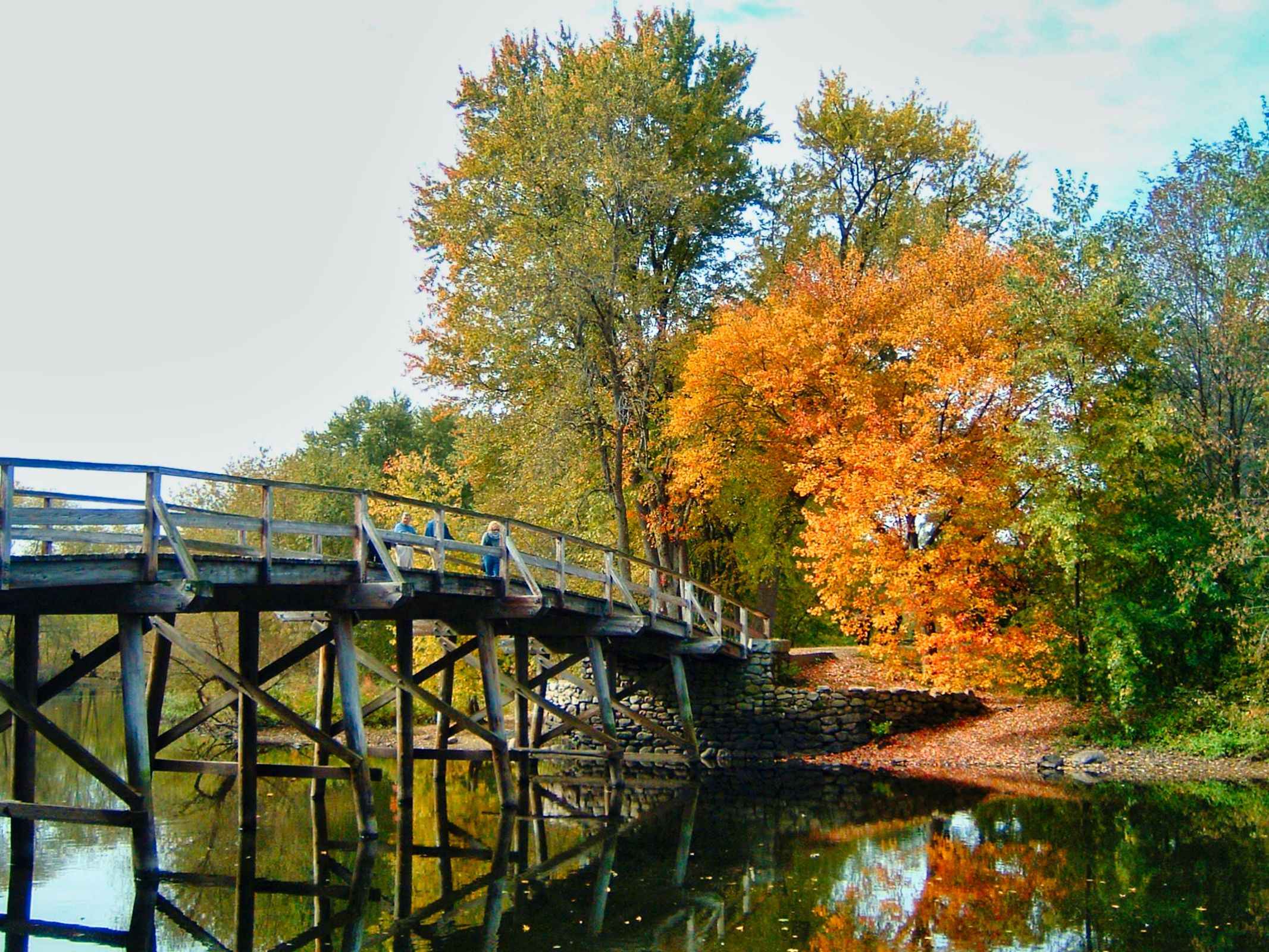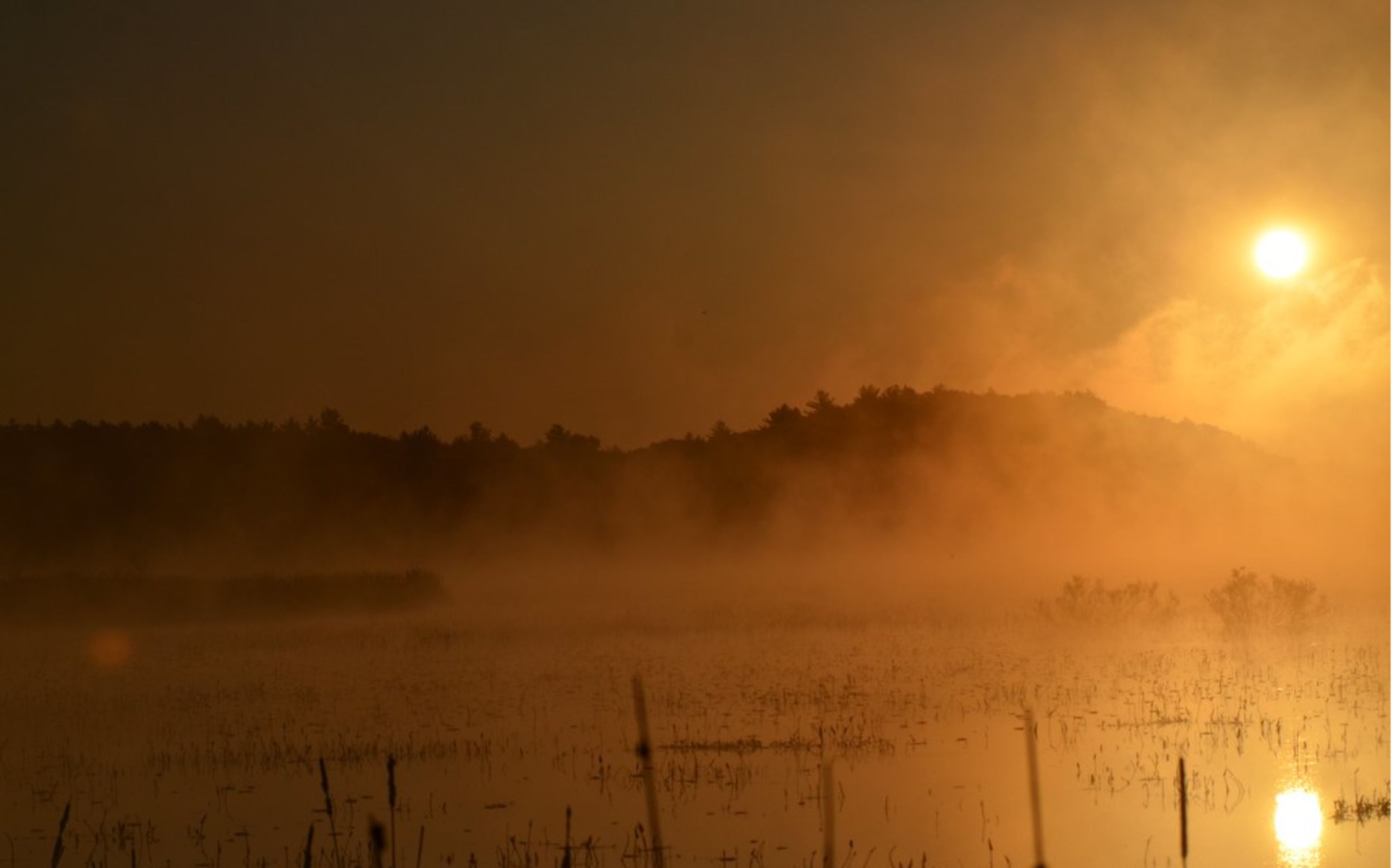Concord MA Fishing: Scenic New England
Concord may be famous for its history, but it's also a great spot for angling! We've got the lowdown on what to fish and where to catch them.

Concord is a scenic New England town in Massachusetts, located around 20 miles northwest of Boston. It was originally called Musketaquid by its original Native American inhabitants, an Algonquian word meaning "grassy plain”. It’s known for its tranquil open spaces, picturesque scenery, charming architecture, and commercial hubs.
The original town center is near the junction of the Sudbury and Assabet Rivers, which converge to form the Concord River, marked with an inscription at what is known as Nashawtuck or Egg Rock. The town was officially formed in 1635 after English settlers peacefully negotiated with the local tribes for the right to settle there, which is where the name “Concord” comes from.
This Massachusetts town is a historically and culturally rich hotspot. It was the location of the first battle of the American Revolutionary War, considered as the “birthplace of the nation” where the “shot heard ‘round the world” occurred. In the 20th century, Concord, later on, developed to be a wealthy suburb known for its peaceful surroundings where numerous literary figures resided and wrote their masterpieces, namely Henry David Thoreau, Ralph Waldo Emerson, Louisa Alcott, and Nathaniel Hawthorne.
Today, Concord is making its mark for its environmental strides, most notably as the first community in the United States to ban single-serving plastic bottles in 2012. It continues to enjoy its reputation as an author’s hideaway that’s visited by fans of literature, and anglers often visit Walden Pond for its scenic beauty and to cast their lines.

Concord Fishing
There are numerous ponds and bodies of water in Concord that are open to fishermen, but fishing from any refuge pond or the impoundments is not allowed. Fishing is permitted from boats and on the banks of the Sudbury, Assabet, and Concord Rivers.
The Concord River is a slow-flowing stream that travels through many of the town’s notable landmarks, such as Old Manse, Minute Man National Historical Park, and under the famous North Bridge. The river continues through to Concord’s part of the Great Meadows National Wildlife Refuge and will travel a total of 15.8 miles northward until it converges with the Merrimack River.
The Concord River’s slow currents and countryside scenery are popular with kayakers, despite the turbulent whitewater rapids near its mouth. The entire length of the waterway is thick with vegetation both along its banks and in the waters, which makes a good ecosystem for fish to thrive. It was originally known to be teeming with largemouth bass, Northern pike, shad, alewife herring, chain pickerel, carp, crappie, bluegill, and American eel. However, the creation of numerous dams in the 19th century hindered migratory fish from traveling back and forth to Concord, causing a rapid drop in the fish population. This resulted in the alewife herring and shad to completely disappear. In 2000, the U.S. Fish and Wildlife Service attempted to revive the extinct alewife by releasing 7,000 adults into the Concord River, but it was unsuccessful.
Fishing on the banks is allowed along the river, but there are no camping sites, so people often kayak or take a small vessel. There are tributaries, smaller streams, and brooks that converge with the river that have sizeable numbers of fish, such as Concord River Swamp, Sawmill Brook, Mill Brook, Thoreaus Bog, and the general area around Great Meadow National Refuge. You’ll find largemouth bass, yellow perch, chain pickerel, crappie, rainbow trout here. Using floating worms, small floating crankbait or spinnerbaits has proven to be effective for anglers.
One of Concord River’s main tributaries, the Assabet River, starts at the Nichols Dam in Westborough and rises from the Assabet Reservoir. This small river travels 34.4 miles toward Egg Rock to converge with the Sudbury River. It's generally believed that Assabet, loosely translated from Algonquian means “the place where materials for making fish nets comes from.” This is a fitting name for a river that holds brown trout, largemouth bass, yellow perch, fallfish, and crappie.
The Assabet is regularly stocked with brown trout between March to June and September to December, which is the best time to go angling in Massachusetts before the waters start to get warmer. Fly-fishing is the game in the Assabet with anglers preferring to use san juans, eggs, black & olive woolly buggers, small pheasant tails, caddis, and midges.
Concord River’s other tributary, the Sudbury River, starts at Cedar Swamp in Westborough, moving northeast through Fairhaven Bay until meeting the Assabet. The National Park Service classifies 14.9 miles of the Sudbury River as “scenic” with the remaining 1.7 miles from Route 2 to the confluence at Egg Rock as “recreational”.
While Sudbury River has its share of largemouth bass, chain pickerel, and Northern pike, anglers prefer heading over to Fairhaven Bay where the bites are often more consistent. The “lake within a river” was formed in a similar process as Walden Pond and is considered one of the more interesting angling spots because of its biodiversity. Egg patterns, nymphs, crankbaits, and streamers are often used here, and while fishing on a canoe is recommended, you can just as well reel in brook trout, bluegill, common carp, yellow perch, crappie, and smallmouth bass from the banks. Anglers often look for spots where there are diving birds which can also lead them to Sudbury River Swamp and Dugan Brook nearby.
Despite the fame of its three rivers, Concord is best known for Walden Pond, which is a lake located just 1.5 miles from the town center, southeast of the intersection of Routes 2 and 126. This notoriously famous kettle hole formed around 10,000 - 12,000 years ago by glaciers that melted and became locked in by sand and gravel from streams. Walden Pond has no streams flowing in or out of it, yet is Massachusetts’ deepest natural body of fresh water. It has an average depth of 40 feet and can easily reach up to 97 feet deep, with water so clear that you can sight fish up to 18 feet below the surface. It covers an area of around 62 acres with a shoreline that remains largely untouched by human structures and activity.
Walden Pond is part of the Commonwealth of Massachusetts’ Department of Conservation and Recreation (DCR) Forests and Parks system, comprising over 335 acres of protected space, where up to 700,000 visitors arrive at the pond annually. Henry David Thoreau once lived here, which served as the inspiration for his book with the same name. Fans of literature flock here to view the author’s cozy one-bedroom cabin near the pond, while others go hiking, swimming, kayaking, and fishing.
You can access the water via the Walden Pond Boat Ramp adjacent to Route 128. The parking area is quite small, maxing out at 10 vehicles with trailers, but there is an area across the street where you can leave your vehicle. Anglers can fish along the entire shore of Walden Pond but can also use an electric-powered boat or kayak on the water.
Top 10 Fish Species in Concord, MA
The top 10 fish species in Concord, Massachusetts are largemouth bass, smallmouth bass, brook trout, brown trout, rainbow trout, chain pickerel, brown bullhead, bluegill, yellow perch, and Northern pike.
Fishing Seasonality in Concord
Walden Pond has varying temperatures with the warm waters providing habitat for smallmouth bass, largemouth bass, pumpkinseed, bluegill, chain pickerel, and brown bullhead that are stocked every spring. The colder areas on the other hand are where you'll find rainbow smelt, which serves as food for the dominant numbers of brook trout and rainbow trout that are stocked here every March to June and September to December.
Whether you’re fly fishing, net fishing, spinning, or baitcasting, Walden Pond is popular with anglers for a good reason. The best times to head out with your rod and reel would be weekdays in the early morning around 6:00 am where the fish will bite until around 3:00 pm. This is so you can enjoy the tranquil lake and not have to deal with tourists and swimmers getting caught in your lines or distracting the fish.
The pond can get extremely busy with tourists during peak stocking seasons, so some anglers prefer to fish from December to February. During this time, Walden Pond can ice up which makes for slow angling, but it’s also the best time to get a trophy trout whether you’re jigging worms, shiners, dough baits, trolled spoons, spinners, or streamers.
From June to September, the largemouth bass is the name of the game in Walden Pond. They’ll swim close to the shore and the clear waters make it easy to spot them near the banks. There’s plenty of smallmouth bass as well, but they’re skittish and will generally ignore your bait. The other resident fish, on the other hand, will head to the deeper and cooler parts of the lake, dwelling at around 70 feet in depth.
Exploring Concord
1.Fishing Charter
Since kayaking and rowboats are what's commonly used in Concord, you can hire a veteran guide to float you down one of its three rivers or show you the honey holes within its many ponds. The best time would be from March to June, particularly in April, so you can also take part in the festivities of Patriot Day downtown.
2. Learn and Live a Little
If you’re in Concord, then you’ll no doubt be a fan of history or literature, and you can get the best of both worlds here. For history buffs, visiting the Old North Bridge where the “shot heard ‘round the world” happened, to checking out Battle Road Trail and the Minuteman National Historical Park are a great start. If you’re a literature lover, the Old Manse House, Emerson House, and Orchard House are well worth a visit! For something that’s a little bit of both, heading over to Sleepy Hollow Cemetery should be on your list as well.
3. Go Birdwatching and Hiking
Great Meadows National Wildlife Refuge an expansive sanctuary that is every nature lover’s dream. Make sure to bring a pair of binoculars because this area is famous for its birdwatching, but there’s plenty of other wildlife to marvel at while you’re hiking along one of its numerous trails.


